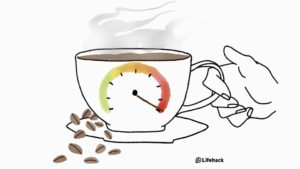8 Facts about Caffeine You Must Know
Several beverages like coke, tea, mate, coffee, and many other common products contain this popular substance called caffeine, which is a stimulant frequently used to enhance mental alertness; however, it has numerous uses. Discover some of them in the following facts about caffeine.
Natural Stimulant
Caffeine is the most popular drug in the world, it exists in more than sixty plants worldwide like the coffee bean, cocoa, tealeaf, and kola nut. People consume caffeine in different forms all over the world and it works stimulating the central nervous system or CNS, muscles, heart, and blood pressure control center.
Caffeine can’t replace our sleep but it does keep us alert during the day, being this the reason why most of the people consume it in the morning after they wake up, due to caffeine elevates adrenaline secretion and block sleep-inducing chemicals in our brain.
Immediate Effect
Once you consume caffeine, it effects will start just 15 min later. Caffeine enters into the bloodstream and once in the organism, its effects will last around 6 hours, which is the same time the organism will eliminate the half of the caffeine you consumed.
However, different effects of caffeine will vary from person to person. Caffeine metabolism is slower as well as in kids, people with liver disease and pregnant women. Moreover, there are substances that will affect caffeine metabolism as well, like medications, which elevate caffeine intoxication risk.
Other conditions will vary caffeine effect too, like anxiety disorders, genetic characteristics and lifestyle factors.
Helps to Control Pain
Have you noticed some painkillers like acetaminophen and ibuprofen are mixed with caffeine sometimes? This combination functions better for some individuals than the painkiller for its own. There are general conditions like headaches and menstrual pains that are generally associated with these treatments, even though these aren’t the only kinds of pain that are relieved with a measure of caffeine.
Some researchers conclude that 200 mg of ibuprofen in addition of 100 mg of caffeine was more effective than a placebo at supplying postoperative and migraine ache alleviation over 6 hours (for people who usually consume products with caffeine)
Improve Athletic Performance

Different exercising activities like running, cycling, swimming, playing soccer and walking might be improved by caffeine consumption; it delays exhaustion and increases endurance and physical strength. Caffeine reduces feelings of exertion too and improves these previous performances.
You must take in consideration these effects stop when you’re a regular caffeine consumer, considering as regular an intake of 4 days a week for a straight month because this leads to toleration.
In addition, these effects won’t act during short-term and high-intensity training like lifting and sprinting.
Memory Enhancement
Thanks to a study announced in July 2015, caffeine is linked to a better memory and improved executive performing like planning, management and organizing in healthy older adults. Besides, researchers found that taking 200 mg of caffeine daily seems to enhance memory in college students and some individuals with extrovert personalities-
There are Good Vitamins in Caffeine
 Riboflavin is an elementary vitamin for improving vitality and controlling metabolism. Despite the fact that the Pantothenic, commonly known as B5, triggers the body to transform sugars into glucose, which body utilizes to create energy. Potassium and magnesium aid to regulate blood pressure, muscle, nerve system, and blood sugar.
Riboflavin is an elementary vitamin for improving vitality and controlling metabolism. Despite the fact that the Pantothenic, commonly known as B5, triggers the body to transform sugars into glucose, which body utilizes to create energy. Potassium and magnesium aid to regulate blood pressure, muscle, nerve system, and blood sugar.
Thiamine is a hydro-soluble vitamin of B family. Including thiamine in your food is essential for preserving healthy brain functioning as well as backing up the positive humor. Thiamine also aids to maintain healthy tissues within protein and enzymes synthesis.
Other than vitamins, it also has antioxidants, which improves the immune system and combats numerous diseases.
Studies also indicated that coffee has an amazing influence in safeguarding and attention to the liver. Besides, it is good for hair growth.
Heart-Healthy Benefits
When drinking in moderation, caffeine may low risks of acquiring coronary artery disease and stroke, it doesn’t seem to elevate the risk of increasing atrial fibrillation, the regular type of intermittent heart rhythm.
Excesses Bring Consequences
High amounts of caffeine may have disagreeable and even critical side effects.

- Insomnia,reports have found that higher caffeine consumption seems to raise the total of time it takes to fall asleep. It may also reduce the entire sleeping period, particularly in the aging.
- Digestive Problems, ofee’s purgative effect has been accredited to the gastrin-releasing, a hormone the stomach creates that increases movement in the colon. However, caffeine also appears to excite bowel activities by rising peristalsis as well, the shrinkages that transport food through your digestive tract.
- Dependency, a exhaustive analysis proposes that even though caffeine activates certain brain chemicals likewise to the manner cocaine and amphetamines do, it does not produce typical dependence the way these drugs do. Yet, it may guide to psychological or physical addiction, particularly at high doses.
- Blood Pressure Misbalance, Caffeine appears to increase blood pressure when drunk at high dosages or before a workout, as well as in individuals who infrequently ingest it. Nevertheless, this result may simply be transitory, so you must check your response.
- Fatigue, even though caffeine offers energy, it can ultimately guide to fatigue when its effects end.
- Recurrent urination and urgency, Augmented urination is an ordinary side effect of high caffeine consumption due to the stimulatory effects on the bladder.
Coffee is a complex drink, with numerous bioactive compounds. In fact, for the majority of the public, it is the main supply of antioxidants. Contrasting minerals, vitamins and additional nutrients there is no established maximum for a determined daily measure of caffeine. It is liable upon your own sensitivity to caffeine.

On the other hand, some sources advocate that drinking too much caffeine can trigger many causes as well usually associated with the brain and digestive system. In addition, disproportionate caffeine can leave you frazzled, nervous and even woozy.
As per professional recommendation, most adults can drink 200 – 300 mg of caffeine daily, which translates to three to four cups of coffee, without any health worry or undesirable side effects. Remember, always thinking about having a balance, excesses for our organism are terrible.




